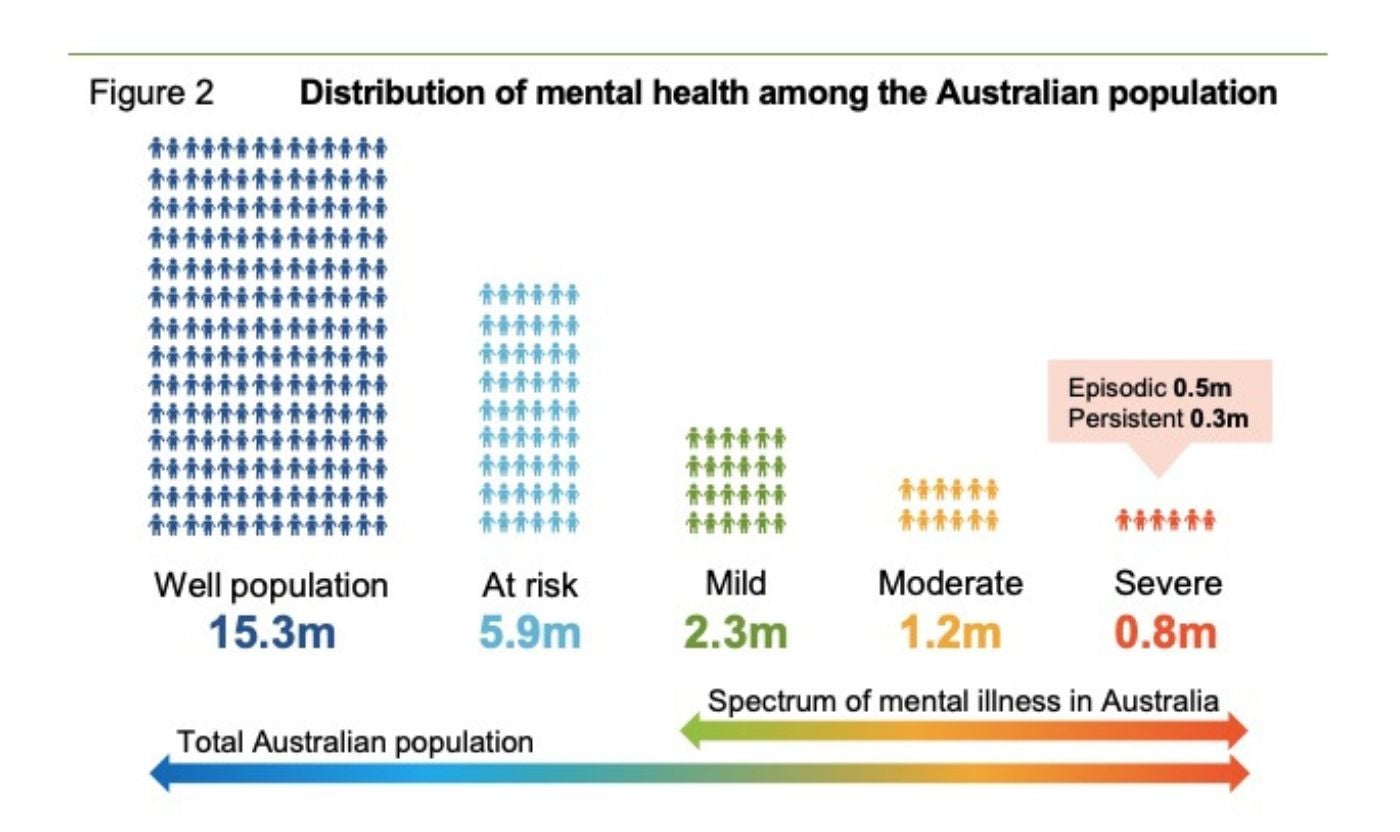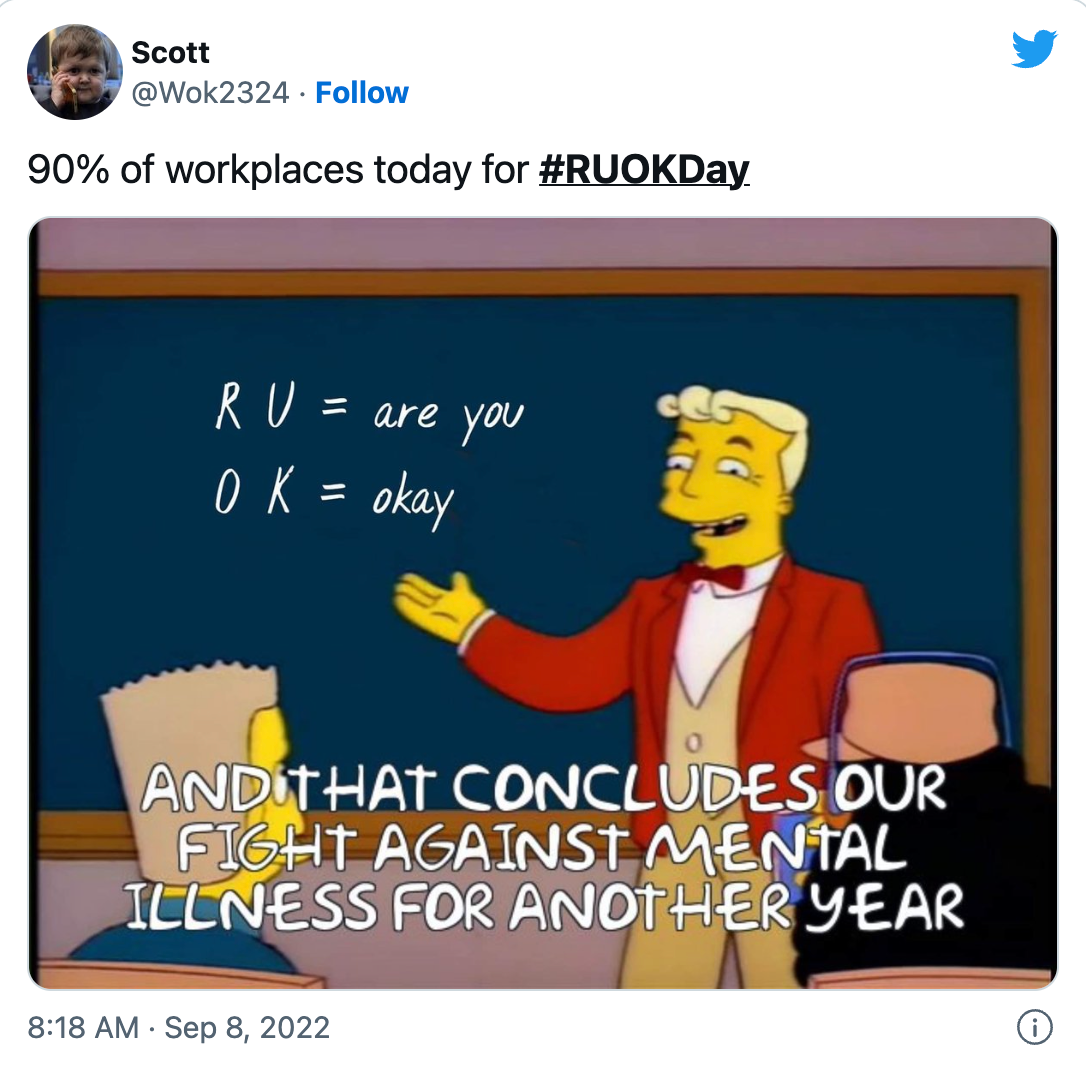
If you are scrolling your social feeds or noticing flyers in your workplace you may have come across a wave of yellow in support of R U OK? Day. This initiative has sparked widespread engagement on a topic once buried under the rug and encouraged many to seek help and change the way they support their friends in vulnerable topics.
As we reflect the day after R U OK consider the actions and outcomes that are also at the heart of these awareness pushes. While there is a large emphasis and support for immediate intervention services - be it lifeline, beyondblue, or 000 there is also a critical pathway around early intervention and maintaining mental health to consider that impacts the lives of millions of Australians.
Awareness movements come with longer-term responsibility & action beyond the activity itself for organisations supporting the cause, individuals supporting their friends, and the government funding mental health initiatives.
A call for preventative care

Check-ins with mates play a key role in preventative care and encouraging help-seeking ahead of a mental health crisis. Preventative care is an important part of maintaining overall health, but it is often overlooked when it comes to mental health. Just as we visit the doctor for regular check-ups and screenings to prevent physical illness, we should also be proactive in caring for our mental health. Unfortunately, mental health is often seen as something that can be fixed solely through medication or reactive responses only after something has already gone wrong.
By identifying warning signs and building positive coping mechanisms, we can build a durable foundation that supports lasting behavioural change and improvement.
Consider the mental health spectrum

When considering the mild to severe spectrum of mental illness it's important to acknowledge the millions of Australians who could benefit from psychological support when they are experiencing early signs and symptoms of mental health decline.
Enduring support

For some with lived experience the short-term nature of an awareness day or month, while uplifting, can also be triggering when considered as a fleeting gesture. Especially in a world where there is distrust of influencers and corporations 'virtue signalling' or 'ticking a box' that can distract from the longer-term changes and actions needed and occurring.
Behavioural change and meaningful support take time and resources. For those looking at the road ahead here is some helpful information:
Did you know you can access rebates for sessions with a psychologist?
A Mental Health Plan entitles you to Medicare* rebates for psychological treatment by registered psychologists. Under this scheme, individuals diagnosed with a mental health disorder or concerns can access up to 10 individual Medicare-subsidised psychology sessions per calendar year.
*Medicare eligible clients. You will need a referral letter and Mental health care plan from a GP in order to claim these benefits.
Many people don't think of a GP as a mental health resource, but GPs are trained to address mental health concerns and many have specific additional training in mental health support. You can discuss your concerns and put a plan in place with the right resources to address them.
Check with your workplace
Many organisations cover the cost of some or all psychology sessions for employees in the form of employee assistance programs. A key issue is employee awareness around these programs or accessibility within the workplace. If your organisation is supporting awareness around mental health and is interested in helping the cause it's worth inquiring whether they cover psychology or counselling services. My Mirror offers a side door approach to these services accessible from home, learn more in our organisations page.
Don't wait to talk to a professional

If you think talking to a psychologist may help get you on track with the life you'd like to be leading don't wait until your concerns are 'big enough' to talk to someone. There is a misconception that you have to be at rock bottom or have a diagnosable condition to talk to a psychologist and this is not true. Therapy is available to you for a range of goals and areas of self development.
